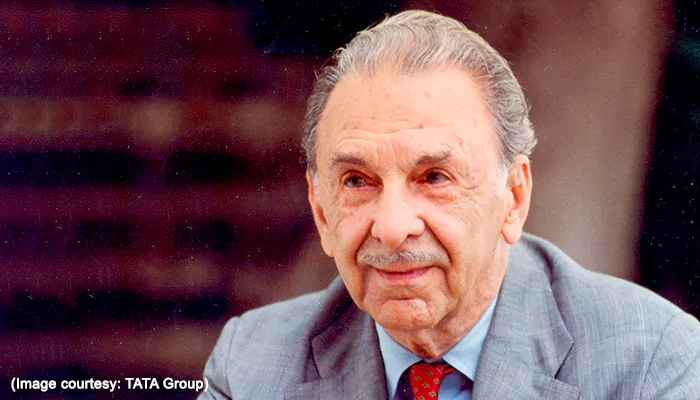Blinkit, Swiggy & Zepto Accused of 'Predatory Pricing': What is it that Threatens Market Fairness?
- Soham Halder
- 1 year ago
- 4 minutes read

India's biggest group of retail distributors accused Zomato's Blinkit, Swiggy and Zepto of predatory pricing and asked for further investigation.
In a highly dynamic Indian retail and ecommerce landscape, one trend has gradually emerged as a game changer, that is, quick commerce (q-commerce), which is an advanced form of e-commerce to deliver goods in the doorstep in a lesser time. In recent hustle-bustle, waiting in a shopping mall for essentials seems to be very time-taking process. To help them, there are numerous quick delivery services across the nation like Swiggy, Zepto, Blinkit, and so on. However, these companies faced allegations of predatory pricing. In this article, we will discuss about this business tactics which invited lots of controversies.

The Allegations:
The All India Consumer Products Distributors Federation (AICPDF), representing 400,000 retail distributors of major companies including Nestle and Hindustan Unilever asked the regulatory authority to check the predatory pricing practice by quick commerce apps.
"Implement protective measures for traditional distributors and small retailers to safeguard their interests," the AICPDF urged the Competition Commission of India (CCI).
What is Predatory Pricing?
Predatory pricing is an illegal business practice of selling goods at an unrealistically low price to eliminate the competition. This buisness tactics violates antitrust laws, as its only aim is to establish a monopoly.

As consumers love to receive cashback, vouchers and low-pricing, this creates an environment of unfair market situation. Consequently, the competitors are forced to abandon the market. However, after creating the monopoly, the offers quickly diminish, allowing one key player to increase the prices of the products unevenly. This again leads to unlawful business activities.
“Such practices make it impossible for traditional retailers to compete or survive," mentioned in the letter submitted by AICPDF.
Consequences of Predatory Pricing:
Sometimes, the company keeps the selling price lower than manufacturing costs. Once the monopoly is established, consumers get no other option to buy from that player only. However, it comes with several impact on the company too. Sustaining the loss while following Predatory Pricing is a tough thing. Many companies get vanished due to improper production and logistics.

Expert’s Words on Growth of q-commerce & Predatory Pricing:
According to a renowned analyst: “The users don’t want to go back to local corner stores and spend 10 to 15 minutes/fuel extra. The usage started from top cities like Bengaluru, Delhi-NCR, Kolkata etc and then has moved to even smaller cities like Indore, Pune, Rajkot etc.”
While discussing about low-cost and offers, a Mumbai-based consumer sector analyst said: “Firstly, the players are trying to become as dense as possible by adding more stores, this will reduce delivery timelines. Second, on these fixed costs, sale of higher ticket sized items in segments such as beauty, electronics, toys, jewellery, will result in increased margins in absolute terms. Thirdly, once there is a critical level of customer base… as shown by Blinkit, ad revenues start pouring in.”

Will CCI take Action?
After the submission of the allegations, CCI has the authority to start a Suo moto investigation. Meanwhile, in August 2024, the regulator’s investigation unit found giant e-commerce bodies like Amazon and Walmart's Flipkart, breached several local laws through predatory pricing. In reality, it's difficult to prosecute any allegations of predatory pricing as defendants may highlight rising competition.
Q-commerce Growth Trends:
In India, Q-commerce market has experienced a remarkable tenfold growth in post-pandemic times (between 2021 and 2023). This was promoted by different platform’s ability to cater to the various demands of urban or semi-urban consumers seeking convenience for frequent unplanned and small-ticket purchases.
In India, Zomato-owned Blinkit leads the Q-commerce market by having 46% of the market share, followed by Swiggy’s Instamart with a 27% share. The new player Zepto has secured 21% of the market, while Bigbasket’s BB has a 7% share, as per survey done by brokerage firm JM Financial.

According to Statista, the Q-Commerce market is predicted to generate a revenue of US$173.20 billion globally by end of 2024. Moreover, it is predicted that the revenue will observe a steady annual increment (CAGR 2024-2028) of 9.77%, culminating in a market volume of approximately US$251.50 billion by end of 2028. Nearly, 0.8 billion users will be involved in Quick Commerce market by 2028, the report mentioned. Annual sales on Indian q-commerce apps are expected to exceed $6 billion by end of 2024, according to research firm Datum Intelligence.
Apart from grocery, non-food items including jewellery, electronics, personal care products are also in high demand in quick commerce sector.
Will these allegations impact upcoming IPO’s of these firms? Only, time will tell.












